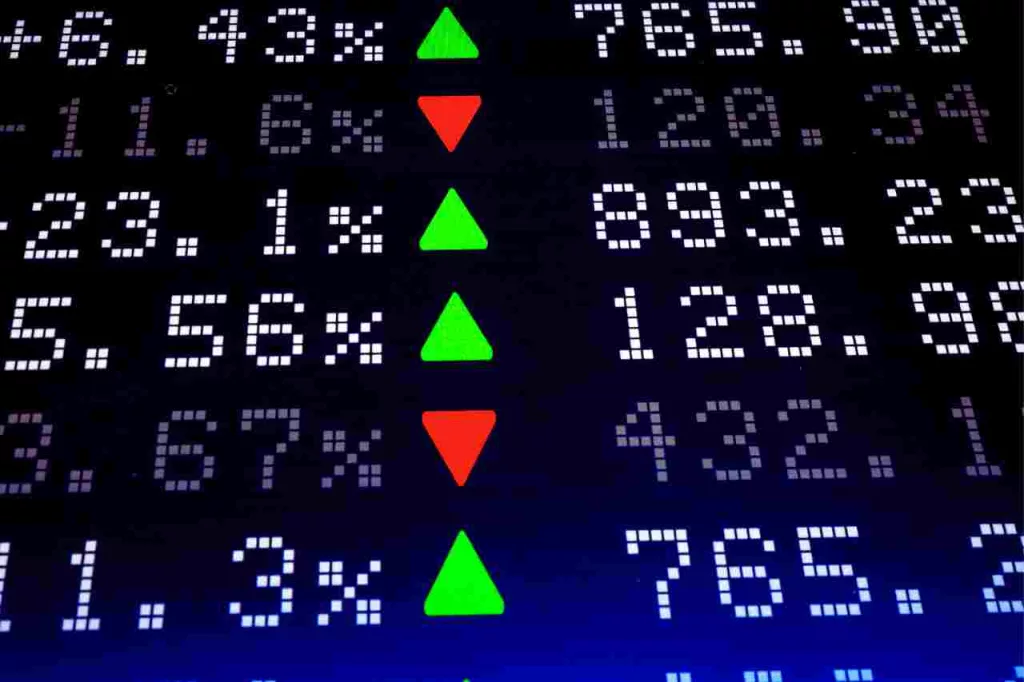Table of Contents
The stock market can be a lucrative platform for making money but also a risky venture for beginners.
Learning about trading before entering the stock market is essential to avoid common mistakes that could lead to significant losses.
In this blog, we will discuss beginner traders’ common mistakes and strategies to avoid them.
These mistakes include needing more research, emotional trading, risk management, failure to diversify, and overtrading.
Understanding these mistakes and how to avoid them is crucial for success in the stock market.
Lack of research
One of the most common mistakes beginner traders make in the stock market is a need for more research.
This can have several negative consequences, including poor investment decisions, increased risk exposure, and decreased potential for growth and profitability.
Here are some ways a lack of research can impact trading:
Poor Investment Decisions
Poor investment decisions are one of the negative consequences that can result from a lack of research in the stock market. Here are some specific ways that poor investment decisions can impact trading:
Investing in Unsuitable Stocks
With adequate research, traders may invest in stocks suitable to their investment goals or financial situation. For example, they may invest in high-risk stocks when they should be focusing on more conservative investments.

Ignoring Company Financial Performance
Failing to consider a company’s financial performance can lead to poor investment decisions. Traders who do not conduct research may invest in a company experiencing financial difficulties, which can result in significant losses.
Not Considering Market Trends
Market trends can have a significant impact on stock prices. Traders who need to research market trends may not be aware of potential risks or opportunities, leading to poor investment decisions.
Timing of Investment
Timing is critical when investing in the stock market. Traders who do not conduct research may invest in a stock at the wrong time, leading to missed opportunities or significant losses.
Increased Risk Exposure
Another negative consequence of a lack of research in the stock market is increased risk exposure.
Here are some specific ways that a lack of research can increase risk exposure:
Lack of Diversification
Traders who do not conduct research may not diversify their portfolios adequately. As a result, they may have a higher concentration of stocks in a particular sector, which can increase their risk exposure.
Investing in High-Risk Stocks
Without conducting adequate research, traders may invest in high-risk stocks that may not be suitable for their investment goals or risk tolerance. This can result in significant losses and increased risk exposure.
Also read: Retirement Planning: How to Build a Retirement Portfolio That Will Last a Lifetime
Not Considering Industry Trends
Industry trends can have a significant impact on a company’s stock price. Traders who fail to research industry trends may need to be aware of potential risks or opportunities, leading to increased risk exposure.
Ignoring Macro-Economic Factors
Macroeconomic factors, like interest rates, inflation, and political events, can impact the stock market. Traders who do not conduct research may not be aware of these factors, which can increase their risk exposure.
Decreased Potential for Growth and Profitability
Another negative consequence of a lack of research in the stock market is a decreased potential for growth and profitability. Here are some specific ways that a lack of research can lead to decreased potential for growth and profitability:
Missed Opportunities
By conducting adequate research, traders may take advantage of opportunities to invest in stocks with strong growth potential. This can result in a decreased potential for growth and profitability.
Inability to Identify Undervalued Stocks
Traders who need to research the market may be able to identify undervalued stocks. This can result in missed opportunities for profit and a decreased potential for growth.

Inability to Monitor Performance
Monitoring the performance of stocks is essential to identify potential risks and opportunities.
Traders who conduct research may need more tools or knowledge to monitor their investments effectively, leading to missed opportunities and a decreased potential for growth and profitability.
Lack of Strategy
A lack of research can lead to a lack of strategy in trading. Traders who develop a disciplined approach to trading may make better investment decisions that lead to losses and decreased potential for growth and profitability.
Missed Information and Opportunities
Another negative consequence of a lack of research in the stock market is missed information and opportunities.
Here are some specific ways that a lack of research can lead to missed information and opportunities:
Inability to Identify Market Trends
Market trends can provide valuable insights into potential investment opportunities. Traders who conduct research may take advantage of these trends and, as a result, take advantage of investment opportunities.
Inability to Identify Risks
Conducting research can help traders identify potential risks associated with investing in a particular stock or industry.
With this information, traders may be aware of the risks they are taking, leading to missed opportunities or unexpected losses.
Missed News and Company Announcements
Keeping up with news and company announcements is critical for successful trading. Traders who do not conduct research may miss important information that can impact the stock price, leading to missed opportunities or unexpected losses.
Also read: Investing in Art: Tips for Building a Valuable Art Collection
Inability to Make Informed Decisions
With adequate research, traders may have enough information to make informed investment decisions.
This can result in missed opportunities or poor investment decisions, leading to losses.

Emotional trading
Emotional trading refers to decisions based on emotions rather than objective analysis and research.
Here are some common emotions that can influence trading decisions:
Fear
Fear can cause traders to panic and make irrational decisions, such as selling stocks during a market downturn.
Traders who make decisions based on fear may miss out on potential gains and be more likely to experience losses.
Here are some ways fear can impact trading:
Selling Too Soon
Fear can cause traders to panic and sell their stocks too soon, resulting in missed opportunities for potential gains. Traders who sell slowly may lock in losses and miss potential long-term gains.
Avoiding Risk
Even when the potential benefits exceed the dangers, fear might make traders avoid taking risks.
Traders who avoid taking risks may miss out on potential gains and fail to diversify their portfolios effectively.
Overreacting to News and Events
Fear can cause traders to overreact to news and events, leading to impulsive decision-making.
Traders who overreact may fail to conduct proper research and analysis and may be more likely to experience losses.
Neglecting to Invest
Fear can also cause traders to neglect to invest altogether, leading to missed opportunities for long-term growth.
Traders who should invest may take advantage of potential gains and fail to achieve their financial goals.
Greed
Greed can cause traders to take on unnecessary risks or hold onto stocks for too long in hopes of earning higher profits.
Traders who make decisions based on greed may fail to manage risks effectively and be more likely to experience losses.
Also read: Best Brokerage Trading Platforms
Here are some ways greed can influence trading:
Taking Unnecessary Risks
Greed can cause traders to take on excessive risks in pursuit of higher profits. Traders taking on unnecessary risks may be more likely to experience losses and fail to manage their portfolios effectively.
Holding on to Stocks Too Long
Greed can also cause traders to hold on to stocks for too long in hopes of earning higher profits.
Traders who hold on to stocks for too long may miss out on potential gains and may be more likely to experience losses if the stock price drops.
Failing to Diversify
Greed can cause traders to focus too heavily on a single stock or industry, neglecting to diversify their portfolios effectively.
Traders who need to diversify may be more exposed to market fluctuations and more likely to experience losses.
Ignoring Risk Management
Greed can also cause traders to ignore risk management strategies, such as setting stop-loss orders or taking profits at predetermined levels.
Traders who ignore risk management may be more likely to experience losses and need help managing their portfolios effectively.

FOMO (Fear of Missing Out)
FOMO can cause traders to make impulsive decisions based on the fear of missing out on potential gains.
FOMO, or the fear of missing out, is a common emotion that may affect traders’ decisions.
Here are some ways FOMO can influence trading:
Impulsive Decision-Making
FOMO can cause traders to make impulsive decisions, such as buying stocks at a high price or entering trades without proper research and analysis.
Traders who make impulsive decisions may be more likely to experience losses and need help managing their portfolios effectively.
Also read: Ten Things to Consider Before You Make Investing Decisions
Neglecting to Conduct Research
FOMO can also cause traders to need more proper research and analysis before making trading decisions.
Traders who neglect research may be more likely to experience losses and fail to identify potential risks and opportunities.
Focusing on Short-Term Gains
FOMO can cause traders to focus too heavily on short-term gains, neglecting long-term investment strategies.
Traders focusing on short-term gains may miss potential long-term growth opportunities and be more likely to experience losses.
Overtrading
FOMO can cause traders to overtrade, entering and exiting trades frequently in pursuit of potential gains.
Traders who overtrade may be more likely to experience losses and need help managing their portfolios effectively.
Overconfidence
Overconfidence can cause traders to overestimate their abilities and take on excessive risks.
Traders who make decisions based on overconfidence may fail to consider potential risks and may be more likely to experience losses.
Here are some ways overconfidence can impact trading:
Taking on Excessive Risk
Overconfidence can cause traders to take on excessive risk, underestimating potential risks and overestimating potential gains.
Traders who take on excessive risk may be more likely to experience losses and need help managing their portfolios effectively.
Ignoring Market Trends
Overconfidence can also cause traders to ignore market trends and rely solely on their analysis and predictions.
Traders who ignore market trends may be more likely to experience losses and fail to identify potential risks and opportunities.
Failure to Admit Mistakes
Overconfidence can cause traders to fail to admit mistakes, leading to a reluctance to cut losses and exit trades.
Traders who fail to admit mistakes may be more likely to experience losses and may fail to manage their portfolios effectively.
Overtrading
Overconfidence can also cause traders to overtrade, entering and exiting trades frequently in pursuit of potential gains.
Traders who overtrade may be more likely to experience losses and may fail to manage.

Lack of risk management
Lack of risk management is another common mistake beginner traders make in the stock market. Here are some ways it can impact trading:
Failure to Set Stop-Loss Orders
Traders who fail to set stop-loss orders may be more likely to experience losses if a trade goes against them.
Stop-loss orders help traders limit potential losses by automatically exiting a trade if the price reaches a certain level.
Ignoring Position Sizing
Traders who ignore position sizing may take an excessive risk by investing too much in a single trade.
Position sizing is the amount of capital allocated to each trade and should be based on risk management strategies and overall portfolio objectives.
Also read: How much money should you invest in stocks
Neglecting to Diversify
Traders who need to diversify their portfolios may be more exposed to market fluctuations and more likely to experience losses. Diversification refers to investing in various stocks and industries to spread out risk.
Failure to Take Profits
Traders who fail to take profits at predetermined levels may miss out on potential gains and may be more likely to experience losses if the stock price drops.
Failure to diversify
Refraining from diversifying is another common mistake beginner traders make in the stock market.
Here are some ways it can impact trading:
Overconcentration in a Single Stock or Industry
Traders who invest too heavily in a single stock or industry may be more exposed to market fluctuations and more likely to experience losses. Overconcentration can occur when traders need to diversify their portfolios.
Neglecting to Invest in Different Asset Classes
Traders who should invest in different asset classes may take advantage of potential growth opportunities and may be more vulnerable to losses if a particular asset class experiences a downturn.
Inadequate Geographic Diversification
Traders who invest solely in one geographic region may be more exposed to political, economic, or social risks.
Inadequate geographic diversification can occur when traders fail to invest in stocks from different countries or regions.
Also read: Investing in stocks and bonds
Failure to Consider Market Trends
Traders who fail to consider market trends may miss out on potential growth opportunities and be more vulnerable to losses if a particular industry or asset class experiences a downturn.
Overtrading
Overtrading is another common mistake that beginner traders make in the stock market. Here are some ways it can impact trading:
Increased Transaction Costs
Traders who overtrade may be subject to increased transaction costs, such as commission fees and bid-ask spreads, which can eat into profits and reduce overall returns.
Failure to Focus on High-Probability Trades
Traders who overtrade may be more likely to make impulsive decisions and fail to focus on high-probability trades, which can lead to losses.
Emotional Decision-Making
In contrast to long-term investing methods, traders who overtrade may be more prone to making emotional judgments based on short-term market changes.
Also read: Brokerage account for beginners
Time Constraints
Traders who overtrade may need more time to thoroughly research potential trades, leading to poor investment decisions and increased risk exposure.
Conclusion
Beginner traders can make several common mistakes when investing in the stock market, including lack of research, emotional trading, risk management, failure to diversify, and overtrading.
These mistakes can lead to poor decision-making, increased risk exposure, and decreased potential for growth and profitability.
However, by recognizing these common mistakes and taking steps to avoid them in the stock market, novice traders can improve their chances of success.
They can conduct effective research, implement risk management strategies, diversify their portfolios, and maintain a disciplined approach to trading.
Ultimately, investing in the stock market can be a rewarding experience, but it requires patience, discipline, and a commitment to learning from mistakes. Beginner traders can achieve their financial goals and build wealth over time by avoiding common pitfalls and staying focused on long-term investment strategies.










